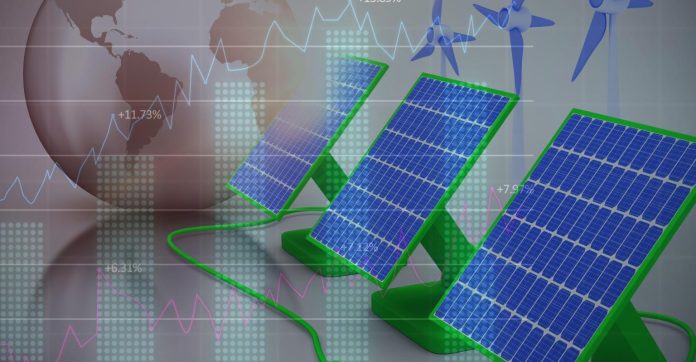Power systems are generating more data than ever
The number of smart power meters worldwide exceeded 1 billion last year, a 10-fold increase since 2010. Meanwhile, connected devices with automated controls and sensors are expected to reach 13 billion in 2023, up from less than a billion a decade ago. This number could reach more than 25 billion in 2030. And there are similar trends in power grids, with around 320 million distribution sensors deployed globally.
All these devices generate data: smart meters collect details on consumption, while sensors transmit real-time data from grids. Well-used, this data brings insights on consumption patterns, foresees grid tensions, and helps manage power systems better. But for that to happen, data needs to be collected, stored, analysed, and shared, while ensuring privacy and cybersecurity. This creates massive challenges for power systems, but also holds huge potential benefits.
Leveraging data brings significant gains to power systems
Good data management can be beneficial for power systems in many ways.
Granular data on consumption, combined with better demand forecasts, allows connected and automated consumer appliances (such as water heaters or electric vehicle chargers) to provide flexibility for the power system: by turning off at peak time or switching on when renewable output is high, they facilitate the integration of renewables, resolve grid congestion, and reduce peak consumption, which is often met with costly, CO2 emitting power plants. In the European Union, for instance, appropriate data sharing could potentially unlock more than 580 GW of flexible energy resources by 2050, which would then cover more than 90% of the flexibility needs of the EU’s electricity grids.
Effective use of data helps increase energy efficiency, for instance by optimising heating and cooling. Moreover, easily accessible high-quality data on consumption and power systems can also help commercial parties develop new services and products for power customers. It also speeds up power restoration after faults.
But too much data remains idle
In the real world, however, data access is rarely frictionless. Most of us have experienced the frustration of being unable to install or connect to a new device or system. Even when things do go well – whether using a smart thermostat to remotely control a heater or installing an application to monitor one’s consumption – what you do not see are the data and communication protocols that allow that to happen. These behind-the-scene requirements include multiple layers of interoperability that in reality are far from seamless, with many missed opportunities for increasing the beneficial use of data in power systems.
This explains why globally, smart meter data utilisation is still below its potential, with only 2% to 4% of data available currently being used to enhance the efficiency of grid operations.
Transmission System Operators acknowledge their underuse of data opportunities. A survey of 10 TSOs shows that most agree their control rooms do not make full use of data analytic applications, even when they have fully digitalised grids equipped with sensors and remote control.
The energy system is collecting more data than ever, but too much of it remains idle, or stuck in siloed storage, with significant untapped potential.
Policymakers can improve the data environment
Policy makers can create regulatory environments that help maximise data use, allowing power systems to reap fuller benefits.
First, regulations should ensure that consumer have easy access to their data and can share it with third parties. Setting general principles is not enough. A recent study mapping access to smart meter data in Europe shows that while European regulations give consumers the right to access and share their data, administrative and technical barriers often limit consistent access: poorly defined and documented procedures, lack of a legally responsible party to create a unified access point, insufficient APIs (application programming interfaces) for automatically connecting to datasets, and inadequate standards for interoperability. Removing these barriers is crucial for ensuring seamless sharing between various stakeholders, for instance, a grid operator who collects smart meter data, and a supplier that will use it to provide tailored advice its consumers. Policymakers wanting to reap the benefits of digitalisation should adopt regulations that effectively ensure data availability. A focus on implementation will be crucial to unleash the power of data for power systems.
Second, there is a need to ensure ‘’demand-response readiness’’, i.e., appliances that can send, receive, and share data on standardised protocols that all relevant objects can understand, regardless of their maker. Companies might naturally prefer to use proprietary interfaces, though this risks making connections to other systems, or from new external stakeholders, more complex or costly.
Many countries are already starting to implement such policies. The United Kingdom is considering mandating that larger domestic-scale appliances, including private Electric Vehicle charging points, batteries, heat pumps, storage heaters and heat batteries, are interoperable with flexibility service providers. The European Union’s planned Smart Readiness Indicator is intended to quantify the energy flexibility capability of buildings, and represent it in a meaningful way for stakeholders. More policies regulating demand-response readiness, informing consumers and incentivising demand-ready appliance could help bring these new sources of flexibility to power systems.
The IEA will continue to work with countries around the world to help identify the best policy tools to improve data environment for power systems
From 6-8 June the 8th Annual Global Conference on Energy Efficiency will be held in Paris, hosted by French Minister of Energy Transition, Agnès Pannier-Runacher and IEA Executive Director, Dr Fatih Birol, in partnership with Schneider Electric.
During a special event on 6 June Powering the Future: Leveraging digitalisation for whole system efficiency the IEA will launch the Digital Demand-Driven Electricity Networks (3DEN) Initiative’s first flagship report on ‘Unlocking smart grid opportunities in Emerging Markets and Developing Economies’









